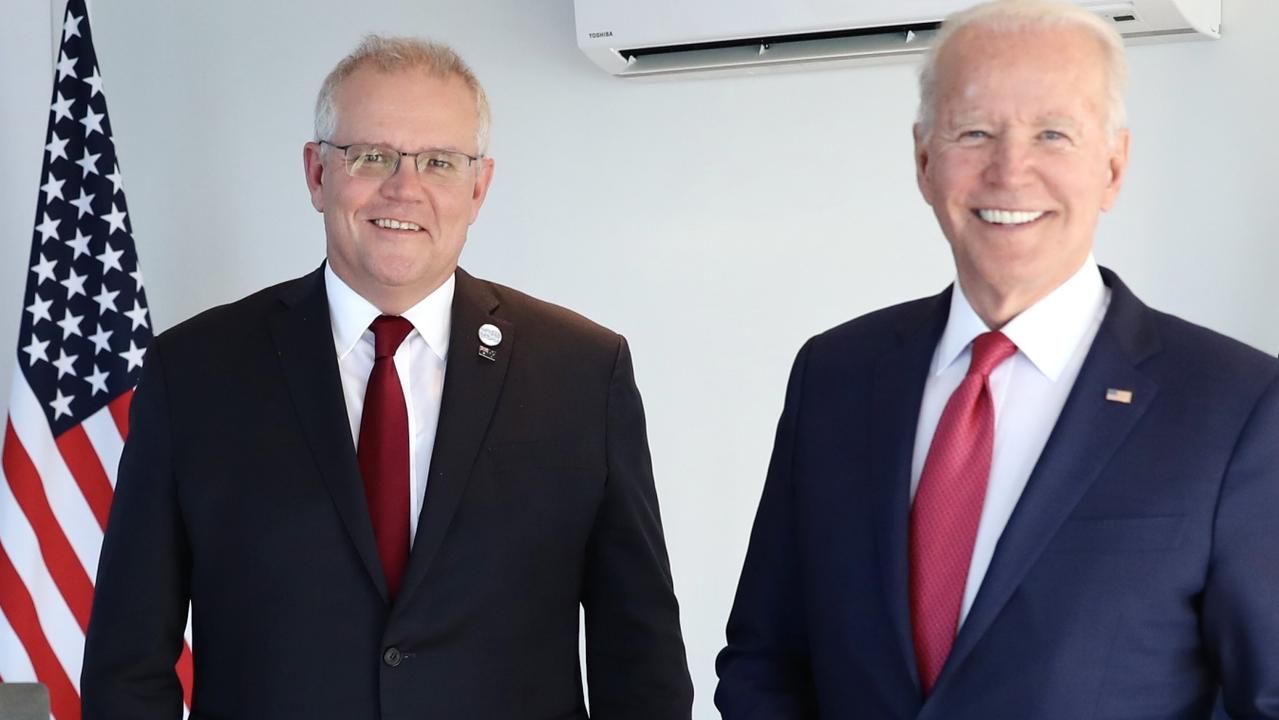Australian Prime Minister Scott Morrison wants to launch a new “strategic economic dialogue” with the United States to counter China’s economic clout.
“Unlike the Cold War, geostrategic competition in the coming decades will be engaged in the economic realm,” former Australian Prime Minister Malcolm Turnbull said in an address to the Australian American Leadership Dialogue. “Our recent experience with economic coercion underlines that. That’s why I believe our bilateral strategic cooperation must extend to economic matters.”
That’s a welcome message for China hawks across the Indo-Pacific, as President Joe Biden and officials in Japan alike are seeking to assemble a coalition to prevent Beijing from bending the region to the will of the Chinese Communist Party. Turnbull paired the economic proposal with a bid to develop the manufacturing power to serve as “a second, secure source” of precision-strike missiles to the U.S. — a pair of ideas marking a dramatic shift in Australia’s foreign policy outlook in recent years.
“The Chinese have succeeded in pushing the Australians so much farther away from where they were two or three years ago than anyone could have imagined,” said American Foreign Policy Council senior fellow Alexander Gray, the lead White House National Security Council official for Australia, New Zealand, and the Pacific Islands.
That’s good news for Japan, which pioneered the concept of the “free and open Indo-Pacific” in a bid to counter China’s ability to seize a premier place in the region.
“Southeast Asia is an area where we have critical feelings,” said Japanese Defense Minister Nobuo Kishi told the Sydney Morning Herald in an interview published Wednesday. “Australia is quite influential in the southeast Asian region, as well as over the Pacific Islands. So, I would like to expect leadership to be demonstrated by Australia in promoting this vision of a Free and Open Indo-Pacific.”
China has made a play to develop ports and airports in the Pacific Islands, occasionally in the islands where important battles of the Second World War were fought. It retains that historic strategic significance because future Chinese military access in those islands could break the link between Australia and Japan and between Hawaii and the key U.S. military base in Guam.
“So, it’s critical that we have the ability to maintain those shipping routes and sea lines of communication around those islands,” Gray said. “They matter for us in the central Pacific, and they matter in the southwest Pacific for the Australians.”
U.S. and allied officials fear China will attempt to seize control of Taiwan in the next several years, which would give the communist regime a new island bastion in the Pacific south of Japan and north of other U.S.-allied democracies.
“The defense stability of Taiwan is very important, not just for Japan’s security, but for the stability of the world as well,” said Kishi, the Japanese defense minister.
Morrison wants to upgrade Australia’s missile capabilities to fortify allied positions in the South Pacific. To that end, his government is contributing $70 million to fund the development of new U.S.-made precision-strike missiles, according to Australian media — and he wants some of them to be manufactured in Australia.
“This will not only meet our defense needs but importantly mean that Australia can become a second, secure source of supply for our ally, the United States. This is all about taking our defense technology cooperation to the next level, where we foster deeper integration of our security-related science, technology, supply chains, and industrial bases,” Morrison said.
Those missiles are not expected to have the range required to target any Chinese forces attempting to operate in the Pacific Islands in a crisis. Still, U.S. withdrawal from a Cold War-era treaty with Russia has opened the door to upgrading the arsenal.
“I think what the lesson of the last couple years is, we don’t want to be in a position … [of] not having the systems to evolve with the security environment,” Gray said. “It’s really important that the Australians have a capability like this because we don’t know five years from now what the strategic environment in their near abroad is going to look like.”

